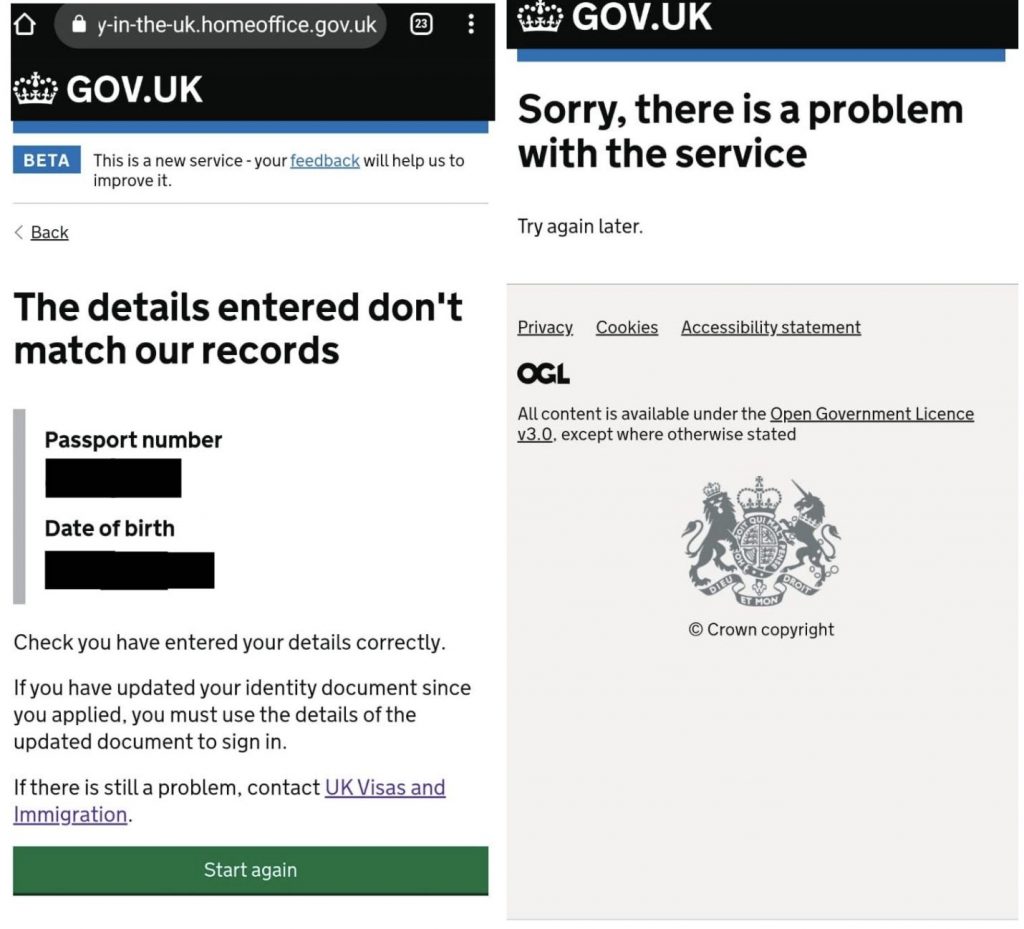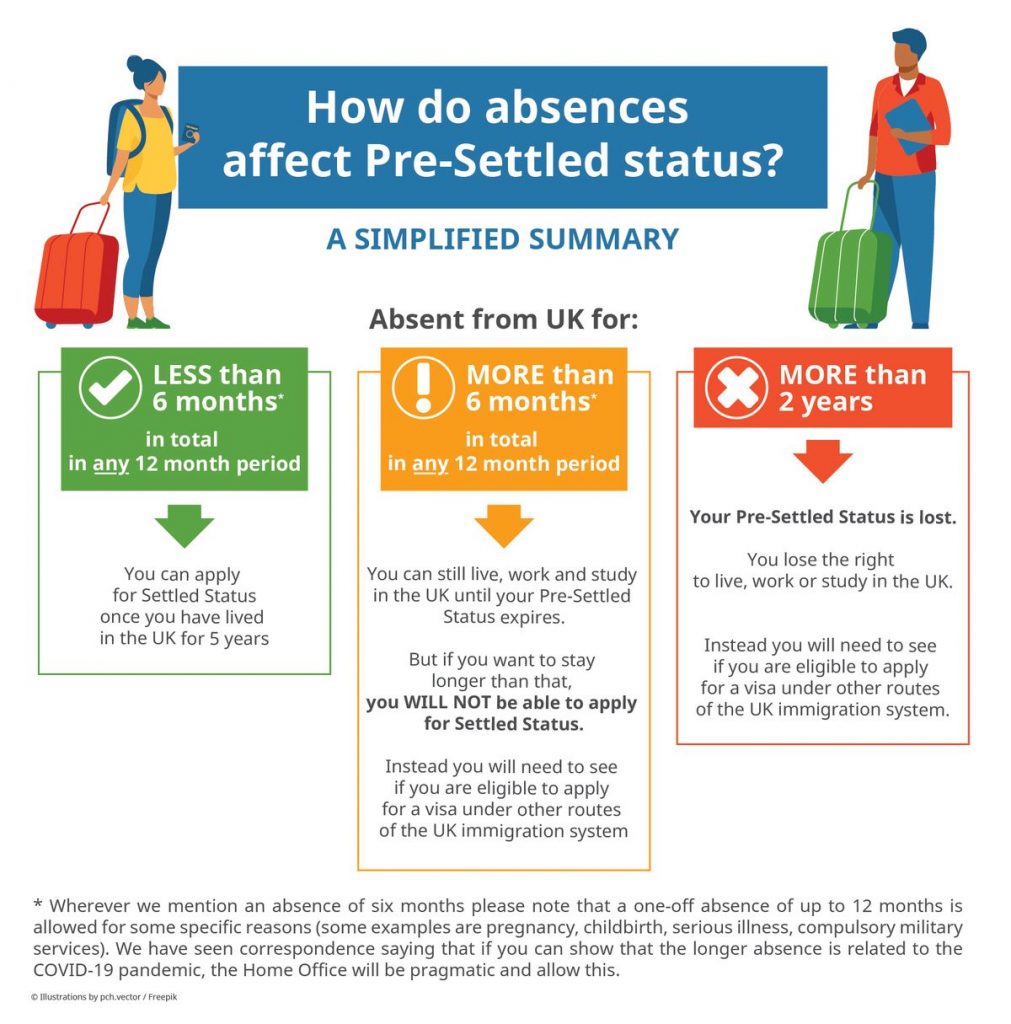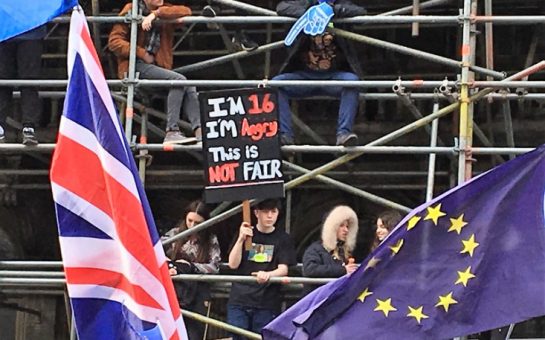EU citizens have expressed concern regarding the EU Settlement Scheme after facing multiple issues during the application process and when accessing their ID.
EU citizens living in the UK have to apply to the EU Settlement Scheme by 30 June 2021 in order to be allowed to stay in the country, and those who do not apply by the deadline will no longer be living in the UK legally.
Successful applicants are granted either settled or pre-settled status.
The3Million, a campaign organisation for EU citizens in the UK, is calling on the Government to provide EU citizens with physical proof of their settled or pre-settled status, as status ID currently exists only in a digital form.
So far, more than five million applications have been made to the Settlement Scheme.
As of 31 January 2021, 140,900 applications were refused, withdrawn, or void or invalid.
The3Million has raised concerns regarding government figures.
A spokesperson for the group said: “The Government stats count applications, rather than applicants.
“Thousands, possibly tens of thousands have submitted repeat applications already.
“Well over a million people who were only granted pre-settled status will sooner or later apply again for settled status.
“This renders the number of applications meaningless.”
Maike Bohn, co-founder of The3Million, expressed concern regarding the upcoming deadline for the scheme on 30 June 2021.
She said: “We reckon hundreds of thousands of people will miss the deadline this summer and our biggest worry is the group of people who miss it: what will the Government do with them?
“Because of the hostile environment in the UK, anyone who hasn’t secured this new status is unlawful in the country, and that has dramatic consequences for someone’s life.”
Dieter Becker, Security Consultant
Dieter Becker, 54, faced difficulties accessing his digital pre-settled status ID for a landlord in January.
Becker lives in Portsmouth, but wanted to rent a room in Banbury for his job.
He attempted “10-12 times” to access his ID on his phone but was repeatedly met with the message: “The details entered don’t match our records”.
It was only after Dieter rebooted his phone and attempted “another three or four” times that he was able to access his ID.
Dieter continued to face difficulties in February when accessing his digital ID.
On 22 February, Dieter made “seven attempts” to access his ID.

Dieter, who is a Security Consultant, applied for settled status but was given pre-settled status.
He said he was not aware at the time of the distinction between pre-settled and settled status.
Dieter raised concerns regarding the digital-only form of the status and wants the Government to provide EU citizens with a concrete backup.
He said: “I am nervous, I’m feeling uncomfortable and unsettled.
“Every other single person with the right to live and work in the UK has got a biometric residence card.
“I don’t know why the Government is making such a fuss about it. It is such a simple thing to do.”
Wouter, Business Owner
Wouter, 33, was awarded pre-settled status, despite claiming to meet the requirements for settled status.
Wouter, who has lived in the UK for more than seven years, was denied settled status by the Home Office.
According to Wouter, the Home Office claimed there had been no residence evidence provided to cover the period between April 2015 and February 2017.
Wouter said: “I was employed on a permanent basis in the UK from September 2013 – March 2017 and provided evidence of this to the Home Office.
“I was fuming. I was really quite angry at the fact that I have clearly been here for seven and a half years, which is longer than the minimum required to get settled status. So I was angry that after all of this, that was not sufficient.”
Wouter’s boyfriend, who lives with him in London, applied for settled status and, according to Wouter, had no issues and got his reply within 24 hours without any need to supply evidence.
He added that his friends had no issues when applying for settled status.
He said: “I thought this would be a very easy and straightforward process to go through.
“Obviously it turned out to be a slightly different experience so far.”
Wouter became a permanent resident in the UK in September 2013 and is the co-founder of a start-up e-commerce business.
He said: “One of the insecurities now if I were to move house or apply for a job where the employer or landlord is requesting proof that I have settled status – that could cause some trouble.”
The3Million has expressed concern for those who have been awarded pre-settled status.
In order to later qualify for settled status, those with pre-settled status cannot leave the country for more than six months.

Maike Bohn said: “Pre-settled status is a real worry because it does evaporate, and if you are not careful you don’t get the final status.
“It’s all these time bombs, individual cliff edges we are worried about.”
Wouter also expressed worry regarding the restrictions on absences with pre-settled status.
He said: “Previously we would be able to move and come back without any limitations, but now of course that’s changed.”
Wouter has decided to reapply to the Settlement Scheme and hopes to be awarded with settled status.
He said: “I’ve always dreamt of moving to London, living and working here.
“I’m quite positive, I do think I will be rewarded with settled status, even if it’s not now, maybe further down the line.”
Elmedina Baptista-Mendes, Specialist Nurse

Elmedina Baptista-Mendes faced issues when applying for the EU Settlement Scheme.
She discovered, through online Facebook forums, rather than through the Government website, that the number on Spanish and Portuguese ID cards must be inserted in full for the EU Settlement Scheme application, which she claims is not a requirement in Spain or Portugal.
Elmedina said: “They are on the card but we’ve never used them.
“In Portugal, I don’t have to add those two extra numbers.
“The Government guidelines do not mention this ever.”
Once Elmedina inserted the full ID number in her application, she was awarded settled status.
However, she still retains concerns for vulnerable EU citizens who are unaware of this and may be denied settled status.
Elmedina also wants physical proof of her settled status ID.
“I like to go on holidays with my family, but I don’t have any hard copy form of ID to present at border control when I’m coming back,” she said.
“I have to ask them to log into the system and what if the network crashes, what if the system is down?
“I have no peace of mind with regards to that whatsoever.”
In particular, Elmedina is concerned landlords and employers are unaware of the digital-only ID.
She said: “The landlords, the employers in small companies, they won’t be eager to sit down and log in to find if you have the right to work or not.
“I can see people falling into the cracks, guaranteed.”
The TUC has highlighted issues surrounding the digital-only status.
Their key concerns include the increased risk of discrimination for EU citizens by employers and landlords.
Elmedina said: “There are groups of European citizens that are low-skilled, they are low paid and they belong to minorities.
“There’s this group of Europeans bang in the middle of this crisis that are not being heard.”
Elmedina expressed particular concern about EU citizens who are ethnic minorities.
She said: “I get together with other Europeans, particularly Portuguese of black descent and they’re mostly blue-collared workers, they are the cleaners, they are the bus drivers.
“They are going to be caught in this gap because there’s limited information in a way they can understand.”
The TUC also raised concerns about the “largely digital” application process which may inaccessible for some EU citizens.
Elmedina is a specialist nurse with a London NHS Trust and moved to the UK from Portugal in March 1995.
She said: “I fell in love with London.
“I’ve always been in full-time employment, never not paid taxes.”
A Home Office spokesperson said: “We are delighted there have now been more than five million applications already made under the scheme.
“There are four months left to apply before the 30 June 2021 deadline, with support available online, on the phone, and from our grant-funded partners.
“We will take a pragmatic and flexible approach in considering the circumstances of each case, so that those who miss the deadline through no fault of their own can still obtain lawful status in the UK.
“Unlike a physical document, a secure digital status cannot be lost, stolen, damaged or tampered with, and we’re developing an extensive package of communications to ensure everyone is fully aware of the move to digital, with over 160,000 uses of our view and prove service so far.”
To apply for the EU Settlement Scheme click this link.
You can read more about citizens having issues with the six month rule during the pandemic here.
Feature Image Credit: The3Million




